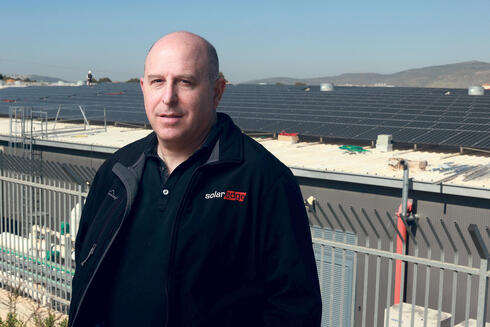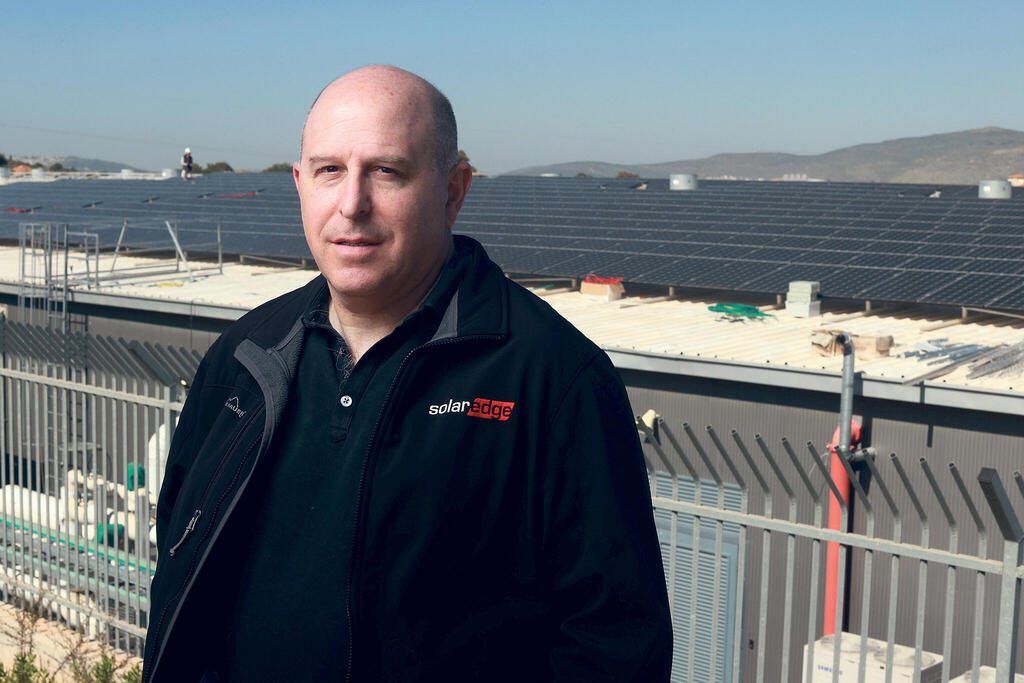
Power failure: Has SolarEdge's crisis made it a takeover target?
The company's value collapsed from $20 billion to $1.6 billion in about two years, making it a potential acquisition target. SolarEdge, which has no controlling owner, announced layoffs of 400 employees, half of them in Israel, causing its stock to continue to fall.
The Israeli renewable energy company SolarEdge announced earlier this week the layoffs of 400 employees, half of whom are in Israel. This accounts for about 8.5% of the company's workforce, which totals around 4,700 employees. This marks the company's second wave of layoffs this year; in January, it laid off 900 employees, 550 of whom were in Israel, constituting about 16% of the workforce.
In a statement, the company said, "The slowdown in demand in the solar market is lasting longer than expected, and in light of the decrease in revenues, we are forced to take significant steps to ensure financial stability. The most significant and painful step is the reduction of manpower."
Despite these layoffs, SolarEdge reported last week that it plans to increase its workforce in the USA by 250 employees to 1,750. These employees will staff the factories it is establishing in the USA, expected to be completed by the end of the year. The reason for this discrepancy is federal incentives for renewable energy companies provided by laws passed by President Joe Biden to combat inflation.
SolarEdge investors are also dissatisfied. Since the beginning of the year, the stock has fallen by almost 70%, and over the last 12 months, it has dropped by 89%. This is in stark contrast to the Nasdaq index, which has risen by 24.6% since the beginning of the year and added 32% to its value over the last 12 months. Consequently, SolarEdge's current market value is hovering around $1.6 billion, a far cry from its peak value of $20 billion in August 2022, when it was the Israeli company with the highest market value in the world.
The continuous decline in the stock, despite massive layoffs, raises questions about SolarEdge's future. Will the company now become a takeover target? When SolarEdge traded at a record value of $20 billion, and even at half that amount, a takeover was a challenging financial move, even for large entities. However, now, with the company at a relatively modest market value, purchasing a significant share of about 30% is a feasible step for many entities. Private equity funds specializing in improving and turning around companies with potential are natural candidates for this move.
SolarEdge has no controlling shareholder, and institutional entities own 83.9% of the shares. The largest shareholder is BlackRock, the world's largest asset manager, which owns 5.7% of the shares. Asset management giants Vanguard and Invesco are also among the major shareholders. However, these giants own SolarEdge mainly through their passive products, which hold SolarEdge shares in accordance with a predetermined investment policy and allocations. Therefore, a private equity fund wanting to acquire control of SolarEdge will have to submit a total purchase offer to the shareholders and offer a control premium.
Additionally, a look at SolarEdge's trading cycles reveals that at the end of 2023, trading cycles were quite active, with 13-25 million shares of the company, which make up about 44% of its shares, changing hands each month. Thus, building a significant position in SolarEdge through market share collection is possible, potentially as a preliminary step to a purchase offer.
Founded in 2006, SolarEdge manufactures optimization systems for solar systems. The company's crisis was caused by two main factors: interest rate increases in the U.S., which harmed the economic viability of installing solar systems on roofs; and an accumulation of stocks of the company's products in warehouses in Europe, following a wave of orders at the start of the war in Ukraine.
In the first quarter of 2024, the company's revenues fell by 79% to $204 million. The company ended the quarter with a loss of $108.6 million, compared to a net profit of $174.5 million in the first quarter of 2023. The loss per share in the first quarter was $1.9, a sharper drop than analysts' estimates, which expected a loss of $1.57. This compares to a profit of $2.9 per share in the corresponding quarter last year.














